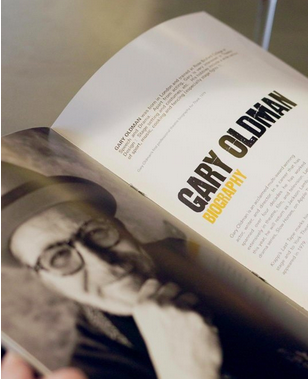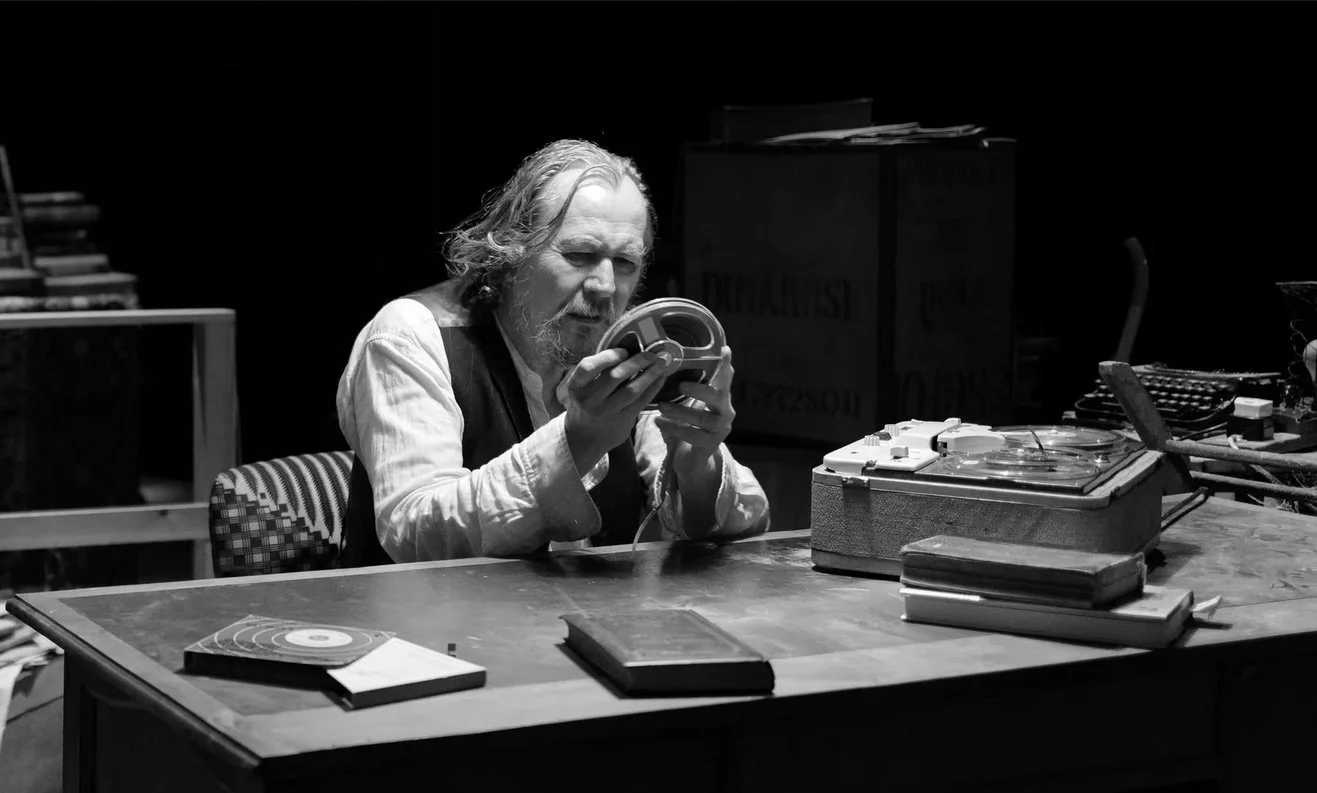Krapp’s Last Tape
‘You see, Mr Skipton’ - she fixed him with exophthalmic eyes - ‘my plays have to be read on two levels.’
Daniel knew all about levels and expected his work to be read upon six or seven.
The Unspeakable Skipton, Pamela Hansford Johnson, 1959
It seemed that most of those packed into the small front room of the Guy Fawkes Inn last Thursday evening had struggled to comprehend on even one level the performance of Krapp’s Last Tape ended 25 minutes earlier at York Theatre Royal. The conversation concerned only practical aspects of the revival of Samuel Beckett’s 1958 one-act play, and there was discontent in the air as pints and G&Ts were sunk. “He just sat behind a desk the whole time”, “He didn’t say anything for the first 5 minutes”, “Half of it was pre-recorded”, “£65 for 55 minutes”, “He doesn’t need the money”.
The “he” is Academy Award, BAFTA, SAG, BIFA and Golden Globe winner, Gary Oldman. His many iconic screen appearances include Winston Churchill in Darkest Hour, Sirius Black in the Harry Potter franchise, Lee Harvey Oswald in Oliver Stone’s JFK and George Smiley in Tinker, Tailor, Soldier, Spy. I still think of him as the Sex Pistol’s doomed bass player Sid Vicious - a role he initially didn’t want to play - in Alec Cox’s 1986 Sid and Nancy.
Oldman started off on the stage, working extensively from 1985 to 1989 at the Royal Court Theatre, London where Alec Cox first saw him. But his first professional role was before that, in 1979 at York’s Theatre Royal. Hence why one of the highest grossing actors in film history is appearing on stage at an 18th century theatre that seats a mere 750 people. And it is a beautiful theatre, I’ll definitely be back.
To address the Guy Fawkes Inn theatre critics’ concerns …
Although I think Gary Oldman may have diverged from Beckett’s original stage directions, it is part of Krapp’s annual ritual that he sits at a desk listening to a tape of his own voice which he has recorded at an earlier time. We are watching him aged 69 listening to a tape recorded when he was 39. But, like Russian dolls, that younger voice talks of him then listening to a tape which “must be at least ten or twelve years ago”. So, while in principle this is a monologue, there are three characters, the decrepit old man we see on stage, his voice from 30 years previously and the memories of the young man in his late twenties.
While Oldman / Krapp doesn’t say anything for a few minutes at the start of the play, that doesn’t mean he isn’t doing anything! Apart from anything else he eats two bananas.
As for the running time, more doesn’t always mean better. God knows what the Guy Fawkes crew would make of Beckett’s masterpiece Eh Joe, 30 minutes straight through, a disembodied (= pre-recorded) voice speaking to an old man in his dressing gown. Seen it once, Michael Gambon in his jimjams, an ethereal Penelope Wilton. “The whisper in your head …. Me whispering at you in your head …. Things you can’t catch …. On and off …. Till you join us …. Eh, Joe?” Blew my mind.
As for the money, of course Gary Oldman doesn’t need the money, clearly he’s doing the gig as a thank you to the theatre that kickstarted his career. I reckon box office receipts for the 4-week run will be in the region of £1.3 million which for York Citizens Theatre Trust is over half the income they made in the last financial year.
This is the third time I’ve seen Krapp’s Last Tape, most recently eight years ago, a performance by renowned Irish actor Barry McGovern which had me hypnotized, staring at that desk long after he had departed the stage, long after the house lights had gone up, long after the rest of the audience had left the theatre. I have to say Oldman’s take wasn’t quite up there with that; good as it was, the production might have benefited from him not also directing it.
But it’s a fantastic play, even - or actually, especially - knowing how it ends:
Perhaps my best years are gone. When there was a chance of happiness. But I wouldn't want them back. Not with the fire in me now. No, I wouldn't want them back.
And that the voice of the 39 year old. Bleak.
But in those five short sentences Beckett demonstrates themes of memory, identity but most strikingly, regret: if we’re not careful, life can so easily run away from us. To hear that warning again, the stage lights slowly dimming over the hunched figure of Krapp surrounded by his books, archive boxes, and battered suitcases, as he stares into the distance with nothing but his own thoughts as company, was worth the £65 entrance fee alone.


